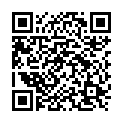|
|
|
| Module code: DFITM-507 |
|
|
4VF (4 hours per week) |
|
5 |
| Semester: 5 |
| Mandatory course: yes |
Language of instruction:
German |
Assessment:
Exam + project work (weighted 1:1, repeated annually)
[updated 05.06.2025]
|
DFBTO506 (P620-0553) International Tourism Management, Bachelor, ASPO 01.10.2018
, semester 5, mandatory course
DFITM-507 (P620-0542) International Tourism Management, Bachelor, ASPO 01.10.2020
, semester 5, mandatory course
BITM-530 (P440-0066, P440-0067) International Tourism-Management, Bachelor, ASPO 01.10.2013
, semester 5, mandatory course
BITM-530 (P440-0066, P440-0067) International Tourism-Management, Bachelor, ASPO 01.10.2015
, semester 5, mandatory course
BITM-530 (P440-0066, P440-0067) International Tourism-Management, Bachelor, ASPO 01.10.2017
, semester 5, mandatory course
|
60 class hours (= 45 clock hours) over a 15-week period.
The total student study time is 150 hours (equivalent to 5 ECTS credits).
There are therefore 105 hours available for class preparation and follow-up work and exam preparation.
|
Recommended prerequisites (modules):
None.
|
Recommended as prerequisite for:
|
Module coordinator:
Prof. Dr. Achim Schröder |
Lecturer: Prof. Dr. Achim Schröder
[updated 09.08.2020]
|
Learning outcomes:
After successfully completing this module students will be able to:
- characterize tourism as an information business and express the importance of information and communication in tourism,
- illustrate the basic principles of information management by tourism service providers, as well as tour operators and travel agents,
- describe essential information, communication and reservation systems in tourism and familiarize themselves with basic use cases,
- assess the consequences of current trends and future developments for tourism,
- derive concepts and criteria for the evaluation of information, communication and reservation systems in order to analyze them systematically,
- develop a concept for a specific issue or problem within a team, organize its implementation and communicate the results of the project in a presentation.
[updated 17.09.2018]
|
Module content:
- Tourism as an information business
- Information management for tourism service providers, tour operators and travel agents
- Information, communication and reservation systems used by tourism service providers (airlines, airports, hotels)
- Information, communication and reservation systems for tour operators and travel agents
- Marketing management systems and systems for end customers
- Current trends and future developments
- Case study work in the field of information, communication and reservation systems (e.g. conception of websites, blogs, social media strategies etc.)
[updated 17.09.2018]
|
Teaching methods/Media:
- Lecture und discussions
- Case study/project work (independent development of a concept and its presentation)
[updated 17.09.2018]
|
Recommended or required reading:
- Amersdorffer, D. et al.: Social Web im Tourismus: Strategien - Konzepte - Einsatzfelder. Springer, latest edition.
- Bach, Th.: Amadeus. Ein Handbuch für die Praxis. DRV, latest edition
- Behrens, J.: Social Media im Destinationsmarketing - Planung, Umsetzung, Monitoring. Wissenschaft & Praxis, 2012
- Brözel, C., Wagner, A., Bochert, R.: Tourismus und Internet. Uni-Edition, 2010
- Egger, R.: Grundlagen des eTourism. Informations- und Kommunikationstechnologien im Tourismus, Shaker, Aachen, 2005.
- Egger, R.; Jooss, M.: mTourism: Mobile Dienste im Tourismus, Gabler, Wiesbaden, 2010.
- Hinterholzer, Th.; Jooss, M.: Social Media Marketing und Management im Tourismus. Springer Gabler, latest edition
- Schulz, A, Weithöner, U., Goecke, R. (Hrsg.): Informationsmanagement im Tourismus: E-Tourismus: Prozesse und Systeme. Oldenbourg Wissenschaftsverlag, latest edition
- Verband Internet Reisevertrieb (VIR): Daten und Fakten zum Onlinereisemarkt, latest edition
- Training systems from GDS providers online (e.g. Amadeus eLearning)
- Web tutorials, e.g. on content management systems
[updated 05.06.2025]
|

